A sea of opportunities: Exploring cooperation between Turkey and the West in the Black Sea
Executive summary
This report aims to explore the prospects for enhanced cooperation between Turkey and Western countries in the Black Sea region in the new geopolitical setting following Russia’s full-scale invasion of Ukraine. It emphasizes Turkey’s key role in the region as NATO’s second-largest military power and the gatekeeper of the Black Sea, and identifies opportunities for the West to engage with Ankara to strengthen regional security and cooperation. Drawing on expert interviews and desk research, the study suggests that—by focusing on defense, maritime security, energy, and political dialogue—the West can leverage Turkey’s strategic position to enhance stability and security in the Black Sea region.
In the political sphere, the interests of Turkey and the West in the Black Sea largely overlap. These include pursuing stability and restoring the regional security order; containing Russian revisionism; bolstering the resilience of Ukraine, Moldova, and Georgia and supporting their European and Euro-Atlantic integration; strengthening NATO’s defense and deterrence capabilities; and exploiting the region’s energy, transportation, and connectivity potential. However, the Black Sea cannot be isolated from the broader context of Turkey’s relations with the West, and achieving better synergy in the Black Sea would require considerable efforts to deconflict Turkey-West relations on tracks that extend far beyond the Black Sea itself.
In the maritime domain, Turkey, with the longest coastline and significant naval and air assets, remains a key player in addressing maritime security challenges. While Ukrainian strikes have significantly degraded Russia’s ability to sustain its maritime power in the Black Sea, both Ukraine and NATO will need to work more closely with Turkey to maintain this favorable balance of maritime power. The recently launched Mine Countermeasures Black Sea Task Group (MCM Black Sea), which relies on NATO littoral states (Bulgaria, Romania, and Turkey) for force generation, can be seen as a milestone for maritime security in the region. This initiative can potentially serve as a reincarnation of Ankara’s idea of regional ownership and provide opportunities for broader cooperation with the West. For example, while Ankara strictly adheres to the Montreux Convention1The Montreux Convention (1936) is an international agreement that grants Turkey the sovereign right to regulate maritime traffic through the Turkish Straits (Bosporus and Dardanelles). In times of peace, it guarantees freedom of passage for all civilian vessels and limits the number and tonnage of warships of non-littoral states, with specific provisions governing their mode of entry and duration of stay in the Black Sea. to prevent expanded presence of extra-regional powers in the region, US and UK air control over the western Black Sea reinforces Turkish posture in the region, ensuring that those countries will remain important non-littoral actors in Black Sea security for the foreseeable future.
Ankara also possesses unique assets for stabilizing the region through its growing defense industry. Turkish advances in unmanned systems have become an important offset to Russian defense technological advantages—which helps Ukraine, Turkey, Azerbaijan, and other Russian neighbors to deter or blunt Russian military adventures—and provides support from the sea. A major naval buildup in recent years, led by indigenously produced ships and systems, has put the Turkish navy on a more equal footing with Russia’s Black Sea fleet. Supporting defense industrial complementarity between Turkey and other NATO members, as well as between Ukraine and Turkey, would help deter Russia, strengthen NATO’s European defense pillar, and contribute to a positive dialogue between Ankara, Washington, and Brussels.
Turkey’s strategic position in the region reinforces its role as a critical energy conduit between east and west, providing a unique opportunity to develop energy cooperation that could have a significant impact on energy security and economic interdependence across Europe. As Turkey and the European Union (EU) are developing a deeply interconnected partnership, centered around natural gas and renewable energy sources, harnessing Turkey’s energy potential would be key to achieving a resilient and diversified energy future for the region. While the EU continues its efforts to diversify away from Russian gas, Turkey plays a crucial role in transporting Azerbaijani piped gas through the Trans-Anatolian Natural Gas Pipeline (TANAP) and the Trans-Adriatic Pipeline (TAP), as well as supplying liquefied natural gas (LNG) through its LNG facilities. The development of Turkey’s largest field—Sakarya in the Black Sea, which has huge potential to supply natural gas to Eastern and Central Europe—would further contribute to regional energy diversification and security.
Now that both Turkey and the EU are seeking greater strategic autonomy in today’s complex geopolitical environment, viewing Turkey as a vehicle for advancing Western interests in the Black Sea region would be both misguided and precarious. Instead, recognizing divergences where necessary—and promoting complementary, better-aligned policies where possible—would enable Turkey and the West to achieve results together that neither could accomplish alone.
This report is not a collaborative effort by a group of experts, but rather a series of analyses authored independently by four different contributors. It is intended to reflect a diverse range of perspectives from the Turkish, US, and European expert communities and academia. The views expressed in each analysis are those of the individual authors and do not necessarily represent the positions or opinions of the other contributors.
Yevgeniya Gaber
Nonresident Senior Fellow,
Atlantic Council Turkey Programs
CHAPTERS
In cooperation with

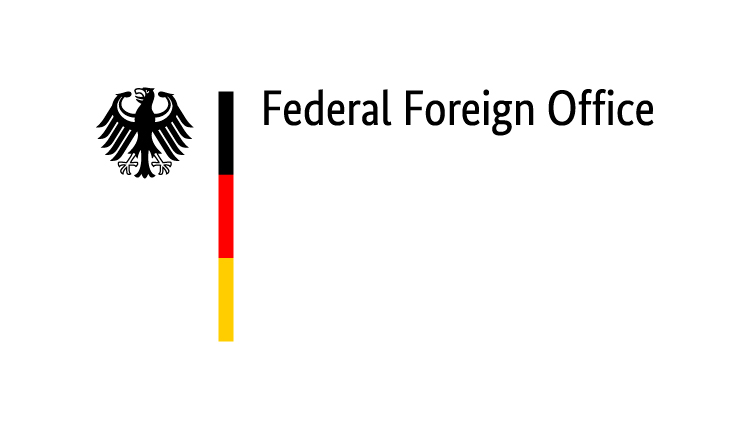
The Centre for Applied Turkey Studies (CATS) at the Stiftung Wissenschaft und Politik (SWP) in Berlin is funded by Stiftung Mercator and the Federal Foreign Office. CATS is the curator of the CATS Network, an international network of think tanks and research institutions working on Turkey. “A Sea of Opportunities: Can the West Benefit from Turkey’s Autonomous Foreign Policy in the Black Sea?“ is a project of CATS Network.
Related work

The Atlantic Council in Turkey aims to promote and strengthen transatlantic engagement with the region by providing a high-level forum and pursuing programming to address the most important issues on energy, economics, security, and defense.
Image: The Danube spills into the Black Sea (The Sea WiFS Project/NASA Earth Observatory/Wikimedia Commons).
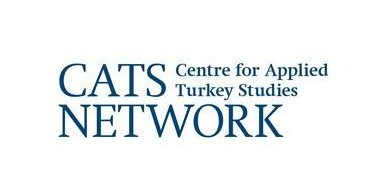
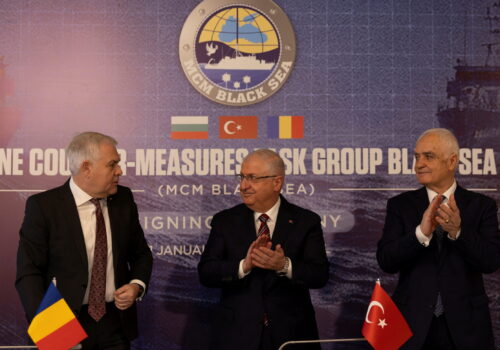
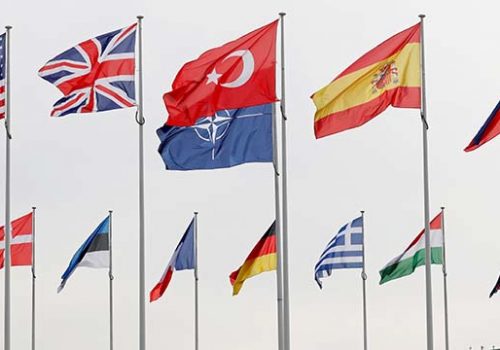
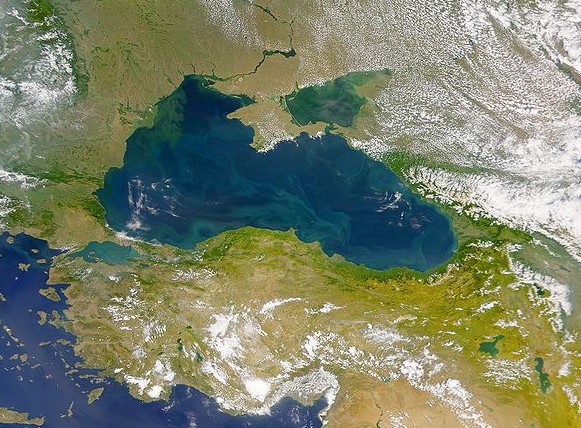
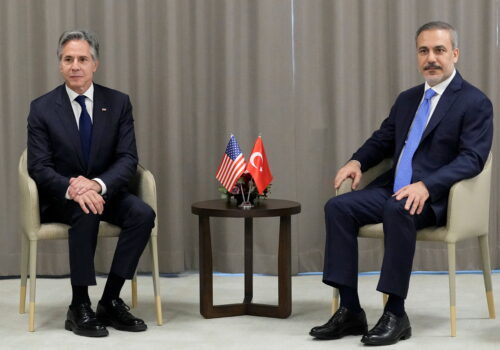
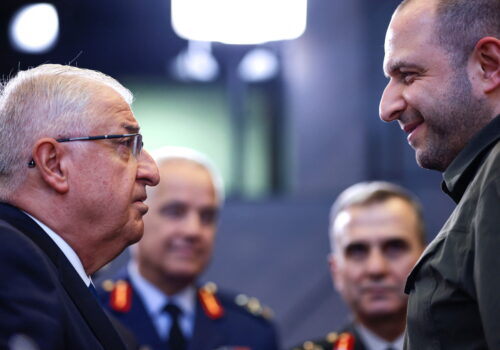
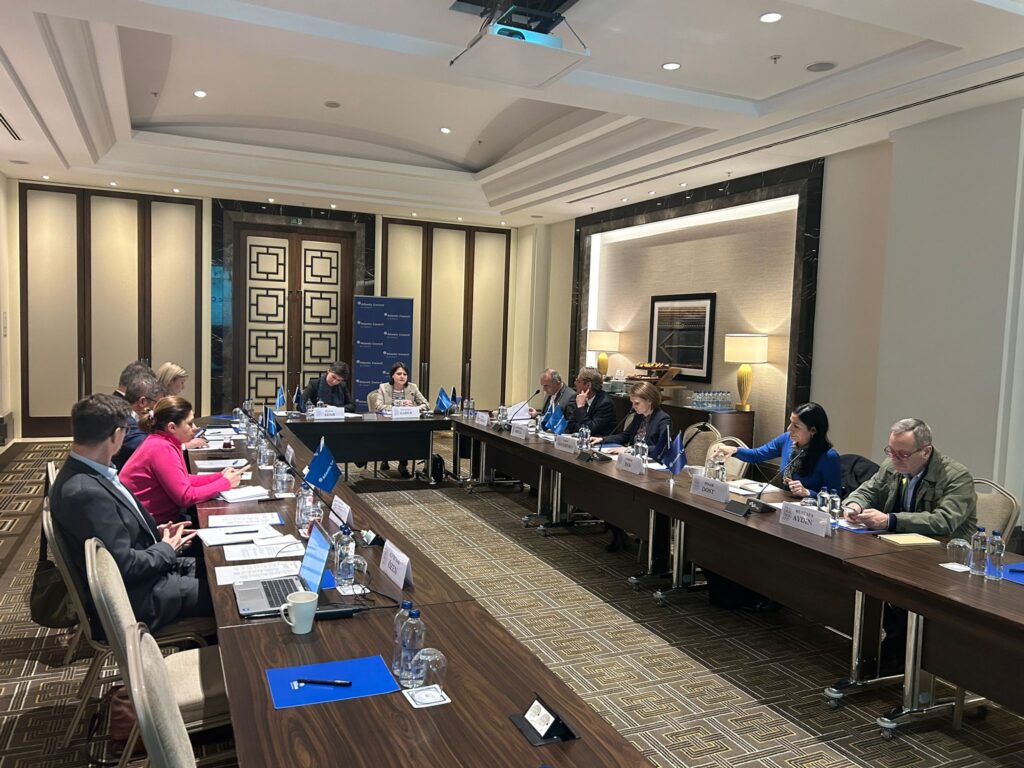
Follow the conversation on X, formerly known as Twitter, with @AC_TRprograms and @AtlanticCouncil using #ACTurkey